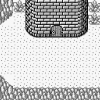Leaderboard
Popular Content
Showing content with the highest reputation on 01/11/2018 in all areas
-

OverClocked ReTreat
Geoffrey Taucer reacted to Gario for a topic
Texas? That's a strong maybe, on my end. Not the greatest state, but it's one hell of a lot closer than the east coast...1 point -

PRC364 - The 14th Anniversary (Free Round)
Jorito reacted to Bundeslang for a topic
Results time. Gario got four points, but ends with the last place wooden spoon. Bundeslang and Silverpool voted to collect five points, enough for fourth place Starphoenix claimed third place with 9 points, PlanarianHugger was 'the best of the rest', second place with 15 points. And the winner of PRC364 is Jorito with 19 points. Jorito congratulations. You got the highest score. You may pick a source for PRC366. Send the source to me (with a MID/MP3 file, otherwise send a second source with a MID file) by PM, other options are PM me @ ThaSauce or by e-mailing to bambombim@gmail.com (I prefer a PM @Ocremix). Send your source as fast as you can, but before this Monday (15 January 2018), 10:59 AM ThaSauce time (18:00 UTC, 19:00 GMT). You may select any source for any game, but not a source with an OverClocked remix or a source which has been used in PRC before. An overview of the past PRC's can be found in the following links: http://sites.google.com/site/bambombim/prc http://bambombim.googlepages.com/PRCRemixList.doc (also downloadable via the link above). Check the ThaSauce Page for the results and votes.1 point -
Wow, I don't know how many people like me missed this posting as I was traveling for the holidays, but oh my heavens is this an amazing track, and one of my favorites on the album! The whole feel of this piece is so in line with Secret of Mana that it just hurts. The beautiful vocal work and brass really combine into something greater than the sum of their parts, which I think is one of the best praises you could give this type of arrangement. Everything, even the name, just crushes what the remixers were going for - I love the work, and am so impressed at the care and power they put into it!! What a performance!!1 point
-
I need to know if this is normal...
timaeus222 reacted to Patrick Burns for a topic
DarkEco, my path and my experience with Impostor Syndrome was very similar to yours. So I'm inevitably going to write too much here. Unfortunately my path ended with me switching to another field besides music. But there's some optimism to be found in your situation. In summary: you are right to feel disconnected, yes that's mostly normal, and there are ways to get better. I grew up with classical piano and guitar lessons and studied a ton of theory in high school (I'll touch on music theory at the end). I attended college on a full music scholarship, breezed through music theory, took a ton of composition. My senior project was a portfolio of rescored film scenes (here's part of it), and I graduated with honors. My teachers always said I had a lot of talent and could make it in the industry if I moved out to LA and committed to the grind. But I didn't feel secure. And I never pursued that path after graduation. I felt exactly like you: that the music I had created was with 'tricks of my sleeve,' extensive trial and error, and/or imitation. Both before and after graduation I invested a lot of effort into trying to "fix" my musical ear and tap into some greater talent, something more inspired, something more deliberate, but I never made much progress at the time. Now it's six years after graduation, and music has become a hobby instead of a professional aspiration. So, with some distance between me and this same doubt you're experiencing, and with the pressure gone of having to make a living from music, here are some conclusions I've come to. First, I agree with the seed of your concern: that writing music can feel totally inconsistent and feel detached from any intention or emotion. I also agree that there are some talented folks who seem to not have that problem, folks who seem to speak music like its their first language---folks who don't know half as much theory as I do. That divide, between where you are and where you think you should be, is understandable. Even more understandable in light of the fact that many non-musician friends and family members may look at you proudly and assume that you have some supernatural abilities, which we do not. Ok, so that's the bad news. The rest of this post is good news. My experience is that most composers are the same way. It doesn't seem that way because it takes a lot of honesty to admit that "I just keep working until it sounds good" or "I just remember some other pieces or tricks that accomplish what I want here." Not to mention that saying those things sorta spoils the mystique of your brand as an artist. But in my experience talking to people, learning about composers, listening to interviews, etc., most composers have a somewhat uninspiring process, though they won't say it outright. If you get familiar enough with the work of any single composer, you'll start to pick up on some of the same solutions they have to the same musical scenarios. Now, their bag of tricks may be bigger and more subtle than yours or mine, but it's still a bag of tricks. As one example, I grew up idolizing John Williams as a creative genius (and I still do), but the more I studied him, and the more I listened to him describe his process, the more I realized how directly he begins with pre-existing works and uses them as a diving board. For example, Parade of the Ewoks comes straight out of Love for Three Oranges. And listen to the first three minutes Bartok's Concerto for Orchestra and tell me you're not on Tatooine. That brass at 2:15. John Williams obviously starts with some known quantities and then begins vamping on them. And then, don't forget, he hands them off to a professional orchestrator who makes them sound even better. The truth is that everyone writes music with a mix of inspiration, craft, and trial/error. I know it sucks that some people seem to have a more gifted ear and a correspondingly higher mix of... emotional intent, if you will. But even those people absolutely rely on craft and even trial & error to get things done. Those who do not learn to subject their nuggets of inspiration to a more dry, uninspired sense of craft and experimentation tend to not be able to break out of writing short tunes. And if they do write longer material, it's usually a collection of shorter ideas smushed together. And to add even more confusion, as an artist your insecurity will probably inflate your estimate of other people's artistic intent and success. If I had sent you the link to my above portfolio with no context, my guess is that you may have made some assumptions about how easily I wrote them. They sound good. I'm very proud of them. But what you don't see are the hours of dumb trial and error, or the source material I may have begun with, the expert musicians who sight read and self-conducted them, or the moments of frustration that eventually led me to quit. So now that I've convinced you that you're normal, how do you get better? Well, again it will always be a mix of inspiration, craft, and trial/error. A -- Trial and error will always be the same battle, but the more experience you have, the more music you get into your ear, then the more kinds of experimentation you'll be open to, the more you'll realize how some crazy shit you thought would never work might actually be perfect, and the more freedom you'll give yourself. You may not feel inspired while doing it, but it will be a problem solving tool for you that gets better and better. B -- Inspiration, the kind where you just hear what you want to write, does exist in various forms for different people. But unfortunately it's a function of some perceptual abilities that develop mostly in childhood, and it's difficult to improve quickly in this area as an adult, for similar reasons to why learning languages is more difficult for adults. Personally, every once and a while I make music in my dreams, and it breaks my heart that making music isn't like that in waking life. (That's a big source of my Impostor Syndrome, because my real life music is an impostor to music I've heard in my dreams.) But you can slowly improve here. It all comes down to your musical ear. I don't necessarily mean academic ear training or transcribing. Those can help and are not inherently bad, but they too easily allow some people (like me) to start playing an overly conceptual game of mix and match rather than focusing on learning the sounds fluently. What you need to do is get comfortable with a polyphonic instrument and just continually try to pick chords/melodies out by ear with no extra assistance. This will do two things to help you be more receptive to inspiration. 1) It will help you get better at holding sounds in your short term memory against the incoming sounds from your instrument. Thus, when the time comes, it helps you protect the little moments of inspiration that may come to you during the compositional process, even if they are brief, rare, and a struggle to materialize. 2) It will force you to develop a more streamlined ear wherein the learned associations begin with sounds and never stop listening. Regardless of how you think through this clumsy process---you may be hearing the sounds and associating them with shapes on the fretboard/keyboard, or maybe even pure muscle memory, or maybe even some simplified theory---as long as you are starting with listening and not instruction. There's a universe of difference between the memories you gain by clumsily picking out a lick on your own versus being shown or reading how to play it. And again it's ok to employ some simplified music theory here to understand what you're hearing, as long as your primary task is listening and finding, as opposed to turning on the analytical mix and match part of your brain, which often allows you to stop listening and turn the exercise into a game of educated guesses. Also, to conclude the inspiration section, I would suggest that every musician sing more. But some people are just too embarrassed to enjoy getting better at singing. C -- This brings me to craft, under which I would place music theory. Music theory is not one thing. It is many things that have their strengths and weaknesses. It's notation. It's orchestration. It's analysis. And there are different kinds of notation, different approaches to orchestration, and different ways to analyze. I agree with AngelCityOutlaw that most composers have picked up some music theory, if merely by virtue of a life lived in music and the inevitability of encountering theory at some point. But I would disagree if anyone suggests that Music Theory Proper is a prerequisite to successful composition or somehow correlates with one's ability. That's not my experience, but I might be wrong. What everyone does have, however is some form of craft, which may or may not express itself through the vocabulary of music theory. In the case of our area, DarkEco---the area of making music for visual media---there's a whole galaxy of 'craft' knowledge that can help us begin and continue to write. And you mentioned that in your post, i.e. genre and instrumentation. I know they feel cheap and wholly unlike the inspired process we want it to be. But those two words encompass a lot and paradoxically can be a big source of inspiration. Movie music basically has developed a language of meaning based on the genre and instrumentation of music being heard. For example pizzicato strings below clarinets playing melodies with a bunch of chromatic notes of course convey humor. Brass and marches convey resolve or power, etc. That boring kind of knowledge is part of your craft, and you can keep developing that sense of craft in areas outside of genre and instrumentation. For example: time. Music that quickly follows the action (like in cartoons) conveys a sense of unpredictability, whereas music that establishes it's own rhythm that doesn't follow the onscreen actions highlights a sort of inevitability to whatever is happening on screen, good or bad. That kind of knowledge arises from critical listening to your others in your craft. And we haven't even started talking about Music Theory Proper yet. Planing whole tone chords, a la Debussy, conveys a very distinctive, almost psychological sound. Those idiosyncratic Prokofiev harmonies in Love of Three Oranges conveyed a quirkiness that John Williams utilized for the planet of Endor. And at the end of the day, notes aren't even the most important thing. You can write a ton of beautifully sculpted music with a minimum of note material. If you just get the right instrumentation playing at the right energy levels, it almost doesn't matter what notes they are playing. You can even win an Oscar. And even in that seemingly small area of craft---instrumentation and energy---you can spend a lifetime developing your sense of craft, developing your own ideas and theories as to what should go where when. *** Yes, I wish I could write tunes and melodies like Yasunori Mitsuda or Toby Fox seem to be able to, and I'd like to imagine those songs were written like in a waking dream. Maybe if I had started music earlier, or started with playing by ear sooner, or moved on to classical training and theory later... maybe then I would feel more in control of my original music. And maybe some people possess some powers of skilled inspiration which I will never have. But there's still a lot of fun to be had in music outside of how we imagine it should be. In my experience, most composers are flying mostly blind most of the time. They just start with something that might work, keep trying until it works, and then further refine their ideas about what might work for the next time.1 point -
Sorry I'm so late in saying anything here (man, the holidays really flew by...)! I hope everyone had happy holidays! --- I know this is really late and I don't mean to bring back bad memories, but I'm sorry to hear about your cat, HoboKa - they're like family, and it's so difficult when they go. --- Silverpool, I loved the retro vibe you had here, and I really enjoyed your synth choices! Sorry I don't have much to say - I really enjoyed your entry, so thanks for submitting! Chadlee, thanks for the comments! Yeah, I did want to do more with the piano, especially toward the end, but I was at a loss as for what to do at the time (glad you liked it!) For my entry, HoboKa's comment about nostalgia / Super Mario 64 really steered the direction I wanted to go this time - I wanted to bring in some Nintendo 64 vibes with the sounds, so there's some new(er) (the piano and toy piano) and old (strings and the accordion) in there. Heck, the strings are from a Banjo-Kazooie soundfont, so, yeah. Now then, gonna go check out the next MnP!1 point
-
No worries, we’re good. We’ll have your track on the album soon enough1 point
-
@Jorito thanks man. Im sorry if i came off as angry or vitriolic but my mind is not in a good place atm and im kinda releasing my pain in places it doesnt belong. I appreciate your candor and helping me be a part of this awesome project. Larry has my wav and comments so all should be well and good whenever the changes go live. Being ex-staff and director i understand the struggle and effort these projects take and im sorry if i personally offended or downgraded the effort you put in, my mind is very clouded at the moment. Thanks again for working with me and im glad i can still be a part of this album. ♡1 point
-

OverClocked ReTreat
Geoffrey Taucer reacted to prophetik music for a topic
i'm not flying anywhere. if it's not closer than DC to me (Western NY) it'd be out altogether.0 points




